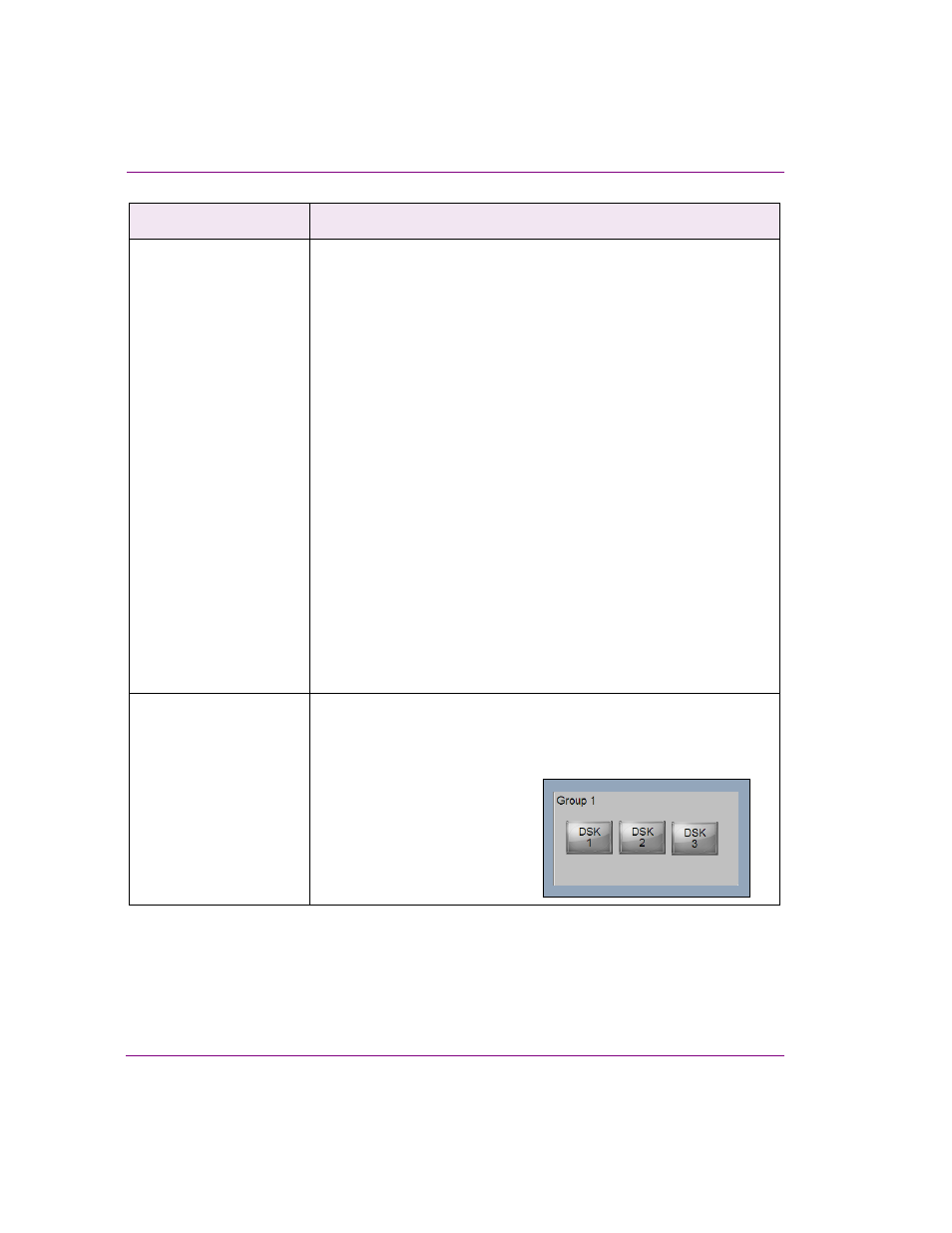Grass Valley Xpanel Vertigo Suite v.4.8 User Manual
Page 48

4-14
Xpanel User Manual
Building and editing panels
Image
Adding an Image object to the panel creates a placeholder upon which
you can add a static representation of an image asset.
To add an image asset to an image object (in Design mode):
•
Either double-click the image object or right-click on the image object
and select the E
DIT
command. The O
PEN
I
MAGE
window appears.
Select the image asset and click O
PEN
.
Or,
•
Open the Asset Browser and select the I
MAGES
tab. Drag an image
asset from the Asset Browser and drop it onto the image object.
Note: A quick method for adding an image object to the panel is to drag
and drop an image asset from the Asset Browser directly onto the panel.
Using this method eliminates the need to create the image object first.
If the desired image is not already stored within the system (i.e. Xmedia
Server), you can use the F
ILE
>I
NGEST
menu command to add it to the
system as a Vertigo Image asset.
When the Image object’s A
LLOW
E
DITS
property is set to T
RUE
(default),
operators can change the image asset associated with the object in
Production mode. By associating the editable Image object with an O
N
U
PDATE
event, it can be used to trigger actions that can affect the playout’s
content or behavior.
Image objects can also be configured to act like a one state button, which
allows them to be associated with the O
N
C
LICK
event to trigger actions
that can also affect the playout’s content or behavior.
Bevel
Adding a Bevel object provides you with a box shape that is useful for
identifying groupings or subdivisions on the panel. The Bevel object’s
background can be a solid color or transparent (leaving just outline frame),
and/or you can display a label for the Bevel using its T
EXT
property.
Drawing objects
Description
The Bevel object creates a
box or background upon which
other objects can be placed.
The Bevel provides the visual
effect of a grouping or
sub-dividing the panel.
